
Rats ‘as big as kittens’ walk up the staircases at Hong Kong housing estate where first human case of rat Hepatitis E virus was found
Visit to Choi Wan Estate in eastern Kowloon found big green dustbins parked under stairwells near wet market, with tissue, plastic and food waste smeared on floor
Choi Wan Estate in eastern Kowloon has been suffering from a rat infestation problem, with residents spotting rodents scurrying around staircases and in refuse collection centres on the ground floor.
Tse Kai-chuen, a retiree who has lived on the estate for almost 40 years, said he saw rats – some seven to eight inches long – on the staircase outside his second-floor flat two months ago, during the height of summer.
“The rats walk up the staircases,” the 70-year-old said, looking unperturbed.
He said he had placed a board across his front door to prevent the creatures from crawling into his home.
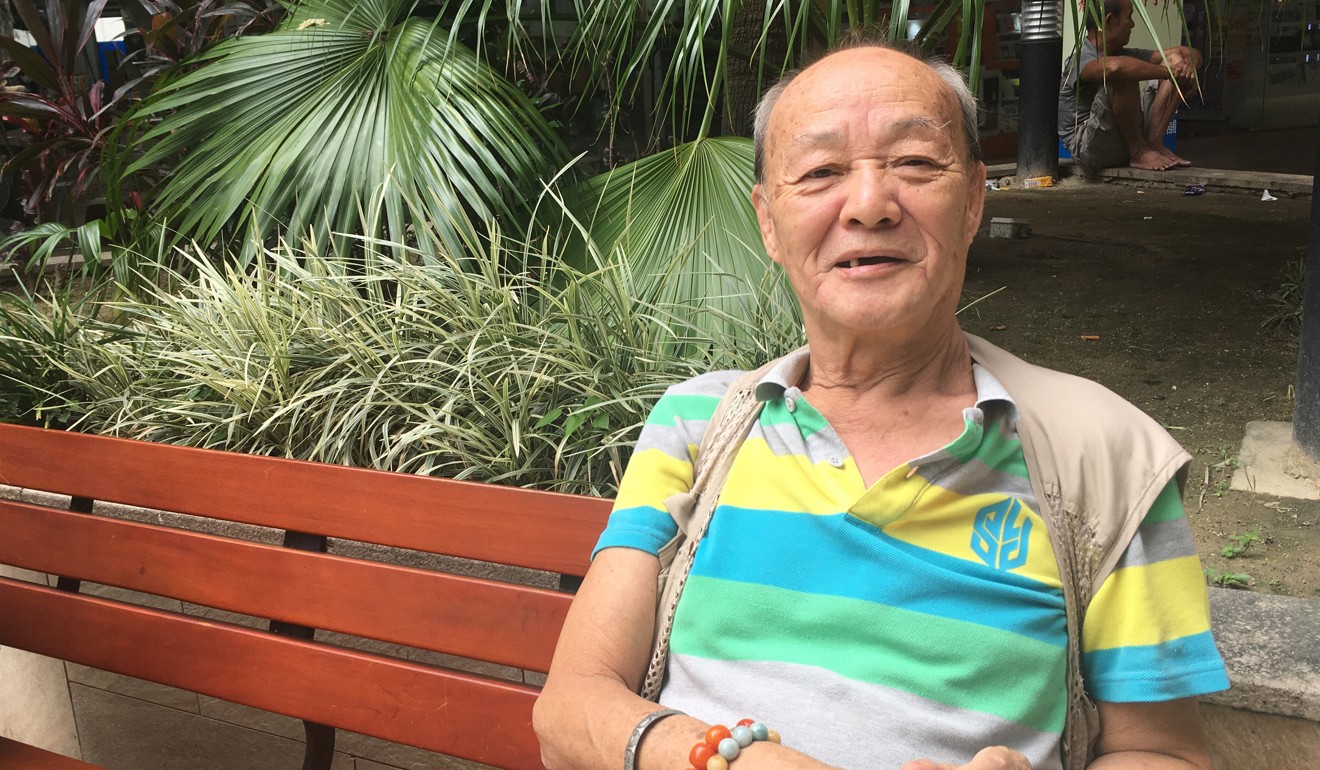
Assistant nurse Ngai Wai-ling, who is in her 60s, said she had seen rats “as big as kittens” outside the central collection area for trash at the foot of her block.
“But there is no need to be worried. All places where rubbish accumulates are bound to have rat problems,” Ngai said.
Once thought to only affect animals such as rats, the Hepatitus E virus is “highly divergent” from the strain that affects people. Researchers from the University of Hong Kong who studied the man’s case said they could not definitively say how the man contracted the virus, but ventured that food he ate had been contaminated by rat faeces.
“Rodent droppings were found around refuse collection bins on the ground floor and the floor where the patient lived,” the researchers said in a report.
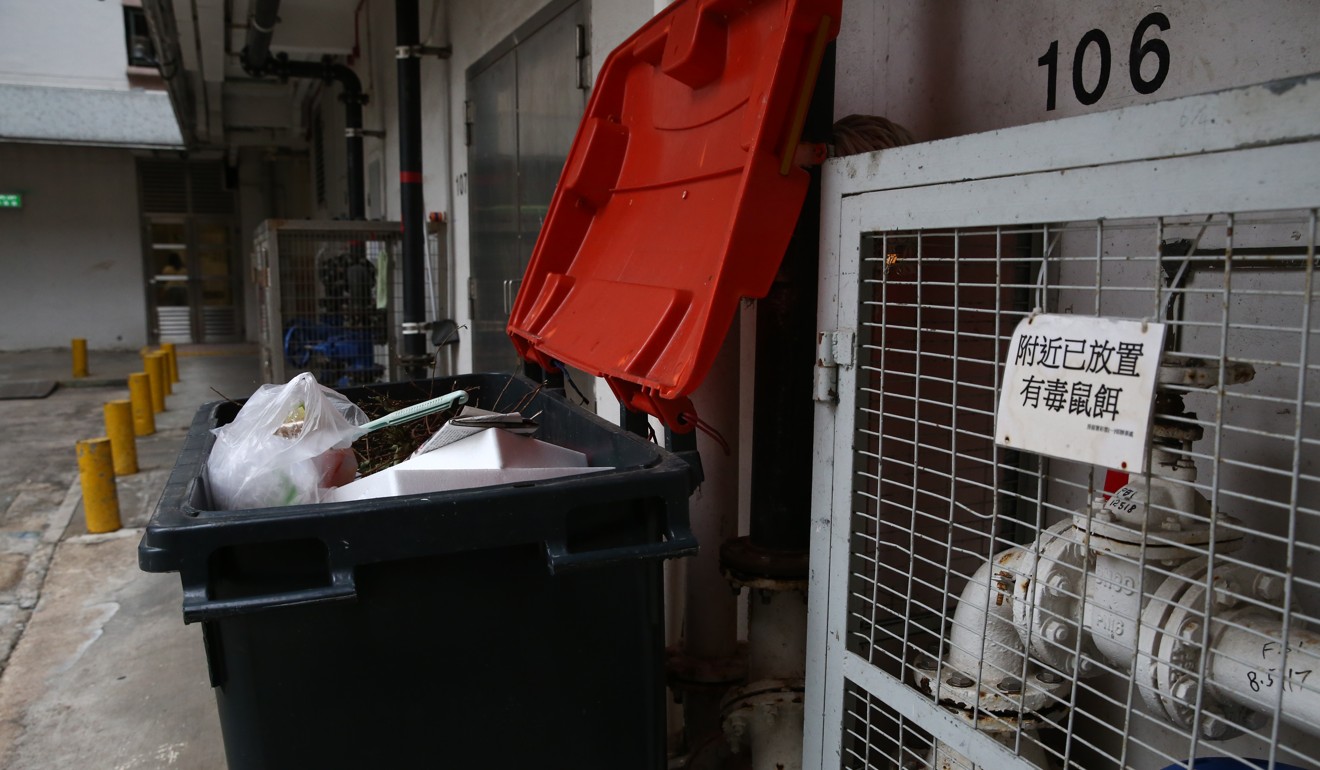
The estate has 21 blocks of rental flats divided into two sections. There is also a wet market and shopping centre with a range of food outlets located on the ground floor.
In most cases, two blocks share a central refuse chute that deposits rubbish into a storage chamber on the ground floor. Access to the chute is through a room, usually locked, on each floor.
But a visit by the Post on Friday found big green dustbins parked under stairwells near the estate’s wet market, with tissue, plastic and food waste smeared on the floor.
At the shopping centre, bins were lined up at an open-air collection point. A grocery store worker said she had seen rat droppings in her shop recently and a dead rodent about two years ago.
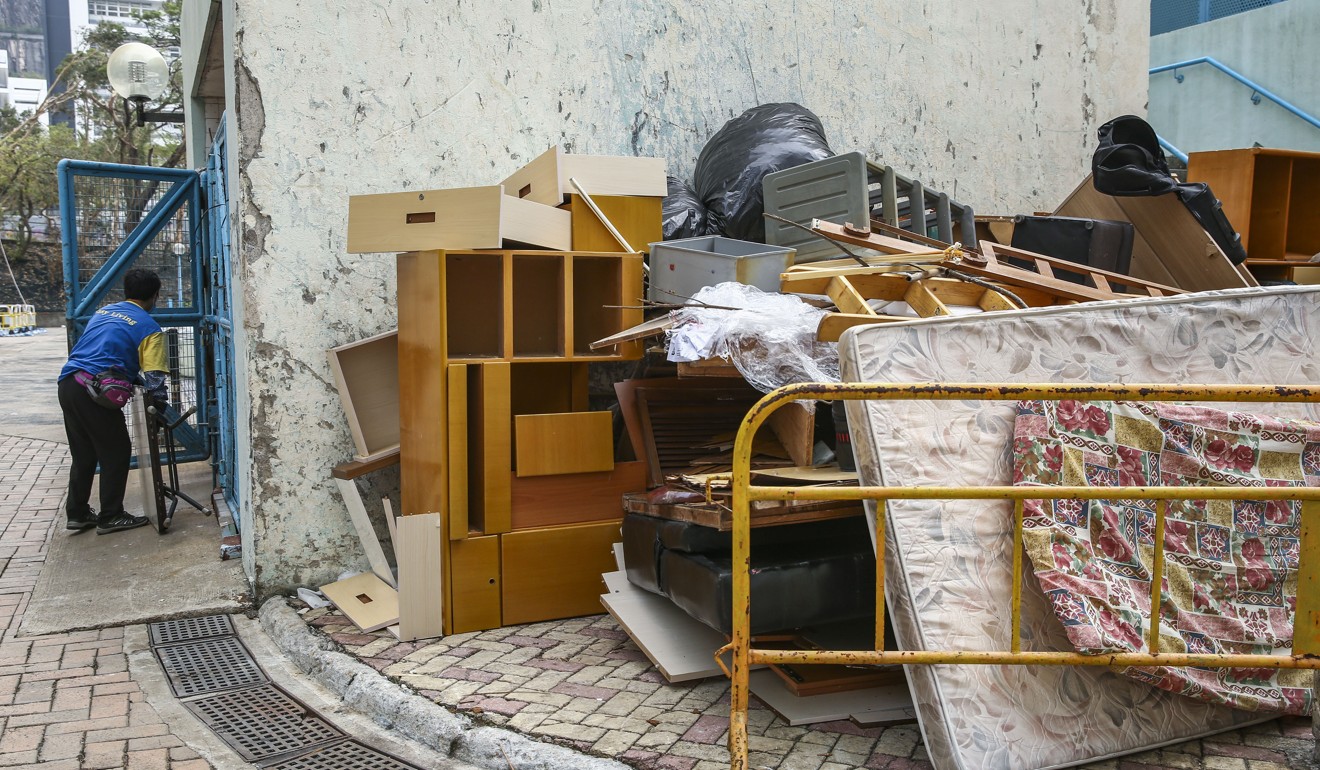
Along the corridors of the blocks, some residents had dumped bags of trash outside their door, awaiting cleaners who would collect them at 9pm and 7am every day and bring them to the room with the chute. On some floors, there were bound-up plastic bags outside the room.

On Friday, workers were spotted checking existing metal boards or adding new ones to pipes and casings for cables to block rodents from using them as passageways around buildings. At the foot of several blocks, there were containers with rat poison and warning signs.
The area’s district councillor Dan Shum Wan-wa said like in many public housing estates, Choi Wan suffered from rodent infestation. On average, in the summer, he said he received between four and six complaints, including from residents living on higher floors.
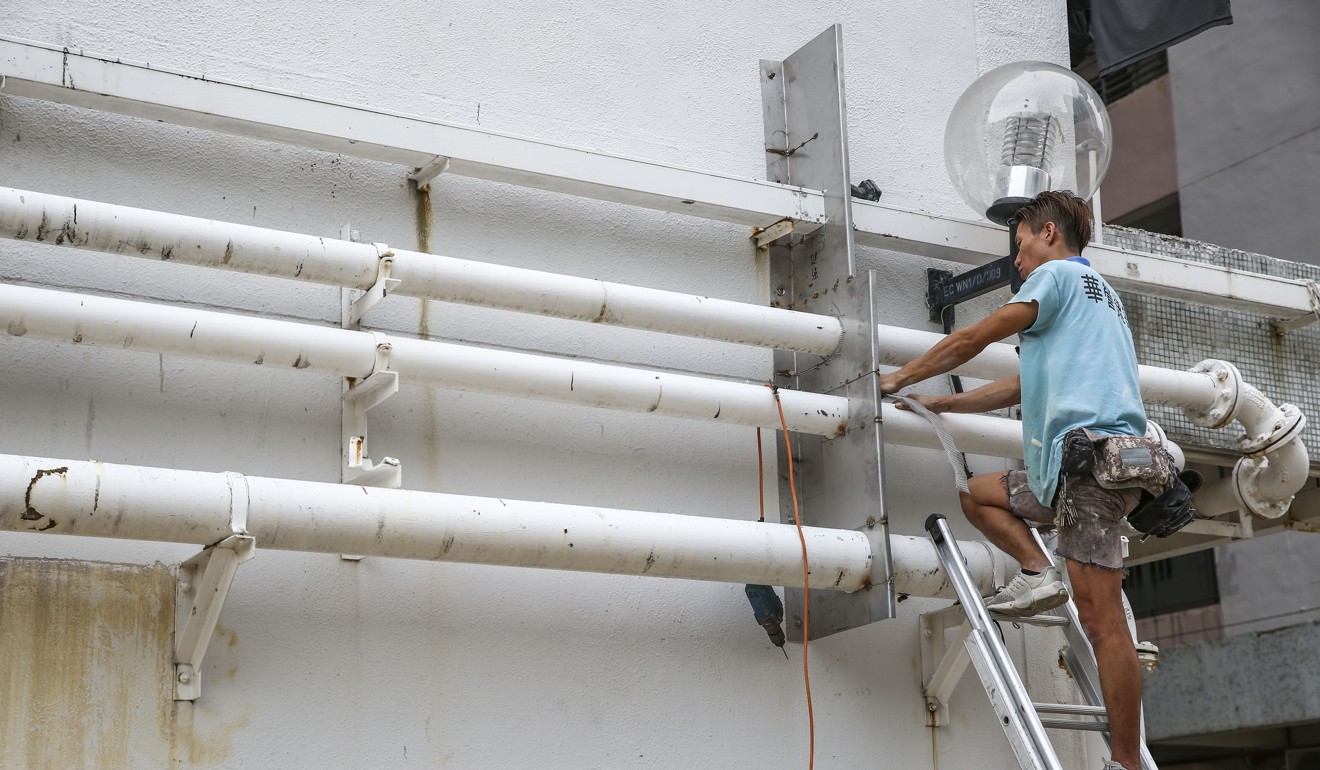
“The estate is generally clean but one problem is the open-air refuse collection area near the market and shopping centre.”
Chan Lee-shing, a community officer who works for the district councillor, urged the Housing Department to look into a new refuse collection system that compressed rubbish by machines.
“Then [there will be] no smell and leaking problems and the truck can just collect the compressed waste right away,” Chan said.
All places where rubbish accumulates are bound to have rat problems
“At least rats and other insects would find it hard to get food.”
The government has for the last 18 years compiled a rodent infestation index for the city’s 18 districts, assessing how much bait set in an area is eaten.
Wong Tai Sin, the district that Choi Wan Estate is in, had a rate of 1 per cent last year but authorities have admitted the index would not reveal the actual conditions within the district. The city had a particularly nasty episode of rodent infestation earlier this year, with control officers reporting double-digit demand for their services.
A spokesman for the Housing Department said offices at Choi Wan Estate had not received any complaints from residents in the past few months about rats in their flats.
He said it had contacted the Food and Environmental Hygiene Department after learning about the study from University of Hong Kong and conducted a joint cleaning operation in the estate on Friday.
The FEHD and the Home Affairs Department plan a roadshow about cleaning operations on Wednesday and remind the public to maintain good hygiene at home and in the estate.
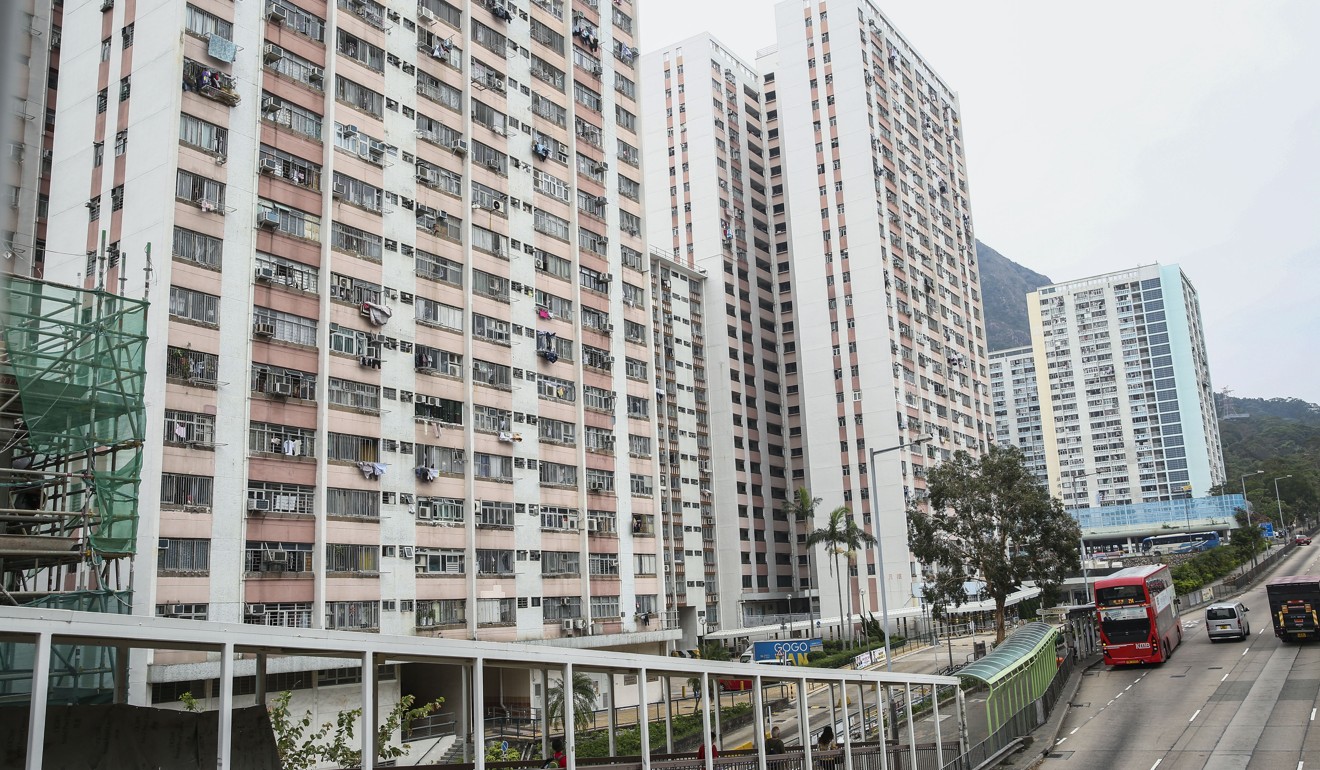
Frontline staff of the Housing Department also attended a one-day pest control course in August.
Representatives from the Democratic Alliance for the Betterment and Progress of Hong Kong, as well as residents, staged a protest at the Housing Department’s office at Choi Wan Estate to request a thorough clean-up within the residential area.

